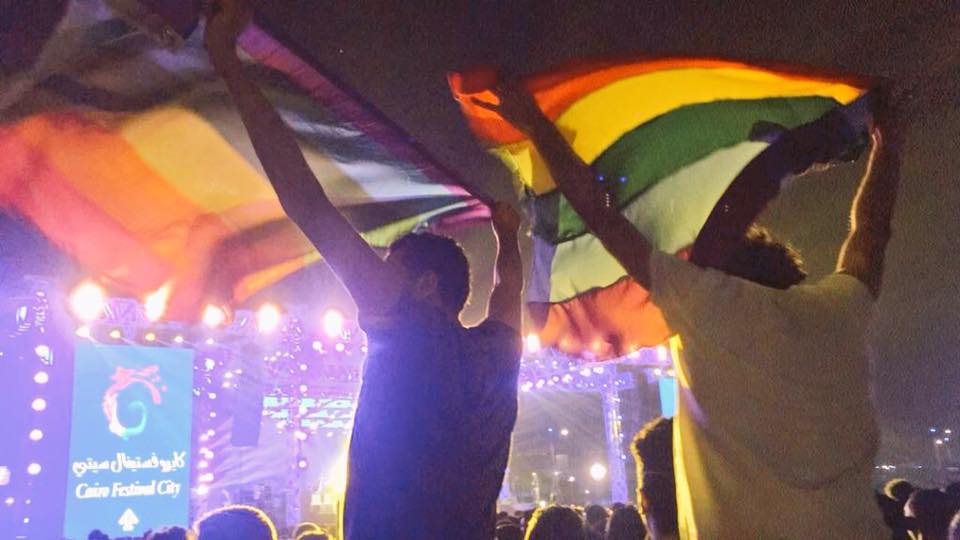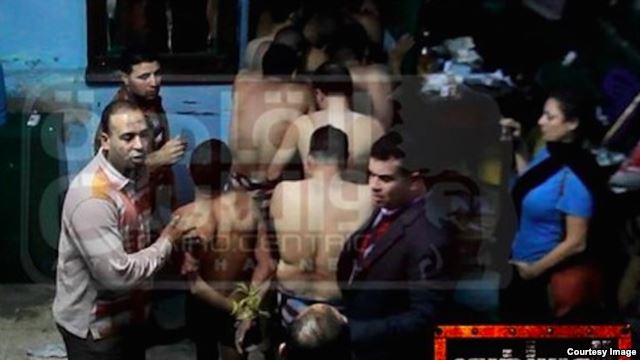Egyptian legal experts expose violations of LGBTQ peoples’ rights
Colin Stewart is a 45-year journalism veteran living in Southern…
Damning report on how Egypt’s crackdowns on LGBT people violate human rights

The Cairo 52 legal research institute has published a new study investigating how Egyptian authorities create custom morality to justify persecuting LGBT+ people. “Sexually Guilty: Custom Morality and the Persecution of the LGBTQ Community in Egypt” analyzes methods and techniques to arrest and prosecute queer people and outlines how those methods violate fundamental constitutional protections and due process rights and reflect the general decay of the rule of law in Egypt.
The report focuses first on four major incidents — the Queen Boat raid of 2001 (52 arrests); the Gay Marriage case of 2014 (eight arrests); the Bab Al-Bahr bathhouse raid of 2014 (26 arrests); and the Rainbow Flag crackdown of 2017 (75 arrests). It also provides unique insights into investigative reports in LGBT+ cases by judicial authorities and the police.
Egyptian society is generally conservative, where any identity outside of the narrowly sanctioned social binary is considered immoral and taboo. Thus, in this atmosphere, it should be no surprise that LGBT+ identities are seen as deviant, with some labeling it as a Western product that aims to corrupt the youth of Egypt; this narrative is dominant in Egyptian society, as shown by a 2013 survey from Pew Research Center that 95% of Egyptians believe that homosexuality should not be accepted by society. Thus, LGBT+ people face social stigma, discrimination, and violence in this atmosphere of social hatred.

The Egyptian state has not only failed to implement the concessional protections against violence and discrimination against its LGBT+ citizens but has also actively promoted hatred against LGBT+ people. The Egyptian state gains legitimacy from acting as a moral protector of Egyptian values and traditions; this role is vital, as the state often fails to meet its other economic and political obligations to its citizens. Thus, to maintain its moral protector image, the State aims to target those who are labeled “corrupt” by society, including not only LGBT+ people but also sex workers, liberal women, and even innocent girls who are just dancing on TikTok. For decades, the state has created the illusion of a “moral battle” that they are fighting against the “deviant” LGBTQ+ community. This “moral battle” allows the state to portray itself as the only protector of morality in society and to have a monopoly over the interpretation of laws. This interpretation is often twisted in the name of morality. The moral scapegoating of the LGBTQ+ community by the State also fuels state-sponsored social violence against the community.
The report investigates how the Egyptian state has used custom morality to justify interpreting the laws to prosecute LGBT+ people. Egypt does not possess any laws that criminalize LGBT+ identities but relies on several morality laws, such as laws related to sex work (10/1961), laws related to public decency (Article 269bis of the Penal Code), and laws related to cybercrime (Article 25 of law no 175/2018), the Egyptian state created a system based on a moral interpretation of those laws to facilitate its prosecution of LGBT+ people. This system operates as a chain, where the police, public prosecutor office, and the judiciary all do their part to ensure that the laws will be interpreted to mean criminalizing LGBT+ people.

The report showcases how this chain functions by outlining state agencies’ performance in LGBT+ cases. The first chapter examines four major LGBT+ cases from 2001 to 2018. The second chapter analyses in-depth how state agencies violate due process and constitutional protections to create their anti-LGBT+ chain of discrimination; this system primarily operates without legal grounds, mainly relying on moral bias and interpretation of state officials.
The third chapter investigates the violations of the rule of law and bodily integrity in these cases and how those violations violate not only national law but also Egypt’s international obligations. Also this chapter points out the failure of the international community to address this issue in Egypt, arguing that the geopolitical importance of Egypt prevents other states from enacting more human rights-oriented foreign policies. Finally, the report notes that the system and methods used by State agencies in this report apply to all those who are deemed immoral by the State, including LGBT+ people.
The report aims to intersect LGBT+ rights with other issues Egypt struggles with, most notably the absence of the rule of law, abuse of detainees, the corruption of the judiciary, police brutality, lack of professional media, failure to meet international obligations, violations of due process rights, violation of constitutional rights to privacy, equality, and anti- discrimination, and allowing social and moral bias to influence law and policy in the country. By doing so, the report puts LGBT+ rights in the context of Egypt’s ever-worsening human rights record that impacts all its citizens to different degrees, with marginalized groups such as LGBT+ people facing dire human rights violations.




